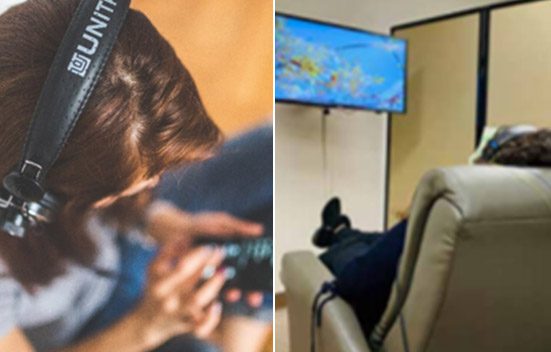The two factors that primarily lead to relationship issues according to 2022 polling data are trust and communication. Navigating these issues in relationships is often a complex and delicate journey. These challenges can arise from a variety of factors, including past experiences, differing communication styles, and individual insecurities. However, with patience, understanding, and effort from both parties involved, it is possible to overcome these hurdles and build a stronger, healthier relationship. Let’s break down how to work through these hurdles in order to foster more healthy and lasting relationships.
Now, it is worth noting that In order to begin the journey of creating a trusting relationship it is crucial that you do everything you can to have open and honest communication. Effective communication is the cornerstone of any successful relationship. Create a safe and non-judgmental space where both partners can express their thoughts, feelings, and concerns openly. Practice active listening, empathy, and validation to foster understanding and connection. Avoid blaming or criticizing each other and focus on finding solutions together.
open and honest communication. Effective communication is the cornerstone of any successful relationship. Create a safe and non-judgmental space where both partners can express their thoughts, feelings, and concerns openly. Practice active listening, empathy, and validation to foster understanding and connection. Avoid blaming or criticizing each other and focus on finding solutions together.
Rebuilding trust takes time and consistent effort. Be transparent and accountable for your actions, and follow through on your promises. Demonstrate reliability and honesty in your words and deeds. Avoid secrecy or deceit, as they can further erode trust. Trust-building activities such as sharing experiences, setting boundaries, and honoring commitments can help strengthen the bond between partners.
The best way to begin is to identify the root cause. Understanding the underlying reasons behind trust and communication issues is crucial. It may stem from past betrayals, insecurities, or misunderstandings. Take time to reflect on your own feelings and behaviors and encourage your partner to do the same. Honest self-reflection can provide insights into the source of the problem.
A step that cannot cannot be skipped is addressing past wounds. Unresolved issues from the past can resurface and impact current relationships. Take the time to address any lingering wounds or unresolved conflicts. Seek closure, forgiveness, or professional support if needed. Acknowledge the impact of past experiences on your relationship dynamics and work together to heal and move forward.
Do your best to cultivate empathy and understanding. Empathy is essential for bridging the gap between partners with differing perspectives or experiences. Put yourself in your partner’s shoes and try to understand their point of view. Validate their feelings and experiences, even if you don’t necessarily agree with them. Cultivate empathy through active listening, perspective-taking, and genuine curiosity about your partner’s inner world.
Set clear expectations. Ambiguity and uncertainty can breed mistrust and misunderstandings. Clarify expectations, boundaries, and needs within the relationship. Discuss topics such as fidelity, communication frequency, and personal space openly and honestly. Be willing to compromise and negotiate to find mutually satisfactory solutions. Setting clear expectations fosters trust and minimizes misunderstandings.
The three P’s, Practice Patience and Persistence. Overcoming trust and communication issues is a gradual process that requires patience and persistence. Be prepared for setbacks and challenges along the way. Celebrate small victories and progress, and don’t be discouraged by temporary setbacks. Stay committed to the process of growth and improvement, both individually and as a couple.
 Make sure you celebrate progress and growth! Acknowledge and celebrate the progress you’ve made in overcoming trust and communication issues. Reflect on how far you’ve come as individuals and as a couple. Celebrate moments of connection, understanding, and intimacy. Recognize the efforts you’ve both put into nurturing your relationship and building a stronger, healthier bond.
Make sure you celebrate progress and growth! Acknowledge and celebrate the progress you’ve made in overcoming trust and communication issues. Reflect on how far you’ve come as individuals and as a couple. Celebrate moments of connection, understanding, and intimacy. Recognize the efforts you’ve both put into nurturing your relationship and building a stronger, healthier bond.
Seek professional help if it’s needed. Sometimes, trust and communication issues may be deeply entrenched or beyond the scope of self-help. Consider seeking the guidance of a couples therapist or counselor who specializes in relationship dynamics. A trained professional can provide valuable insights, tools, and techniques to facilitate healing and resolution.
Biofeedback with EEG, also called Neurofeedback sessions can help the goals and techniques listed above happen more smoothly, easily, and effectively. It allows your brain to gain a better understanding of its functions and internal hiccups as well as increasing its ability to learn and adapt in new ways. Any growth, learning, or healing process benefits from the increased brain functions and neuroplasticity that come with biofeedback sessions. If this interests you then you can schedule an appointment here.
Working through trust and communication issues in relationships requires patience, understanding, and commitment from both partners. By identifying the root cause, fostering open and honest communication, establishing trust, addressing past wounds, cultivating empathy, setting clear expectations, practicing patience, and seeking professional help if needed. Couples can and do overcome these challenges and build more resilient and fulfilling relationships. Remember that it’s not about avoiding conflicts or challenges but rather about navigating them together with love, respect, and mutual support.
Our mission is to help you!





